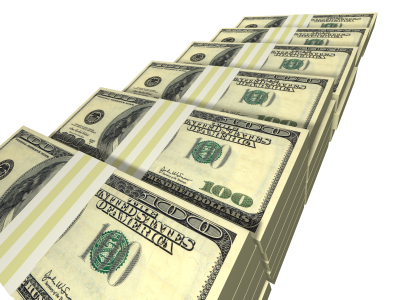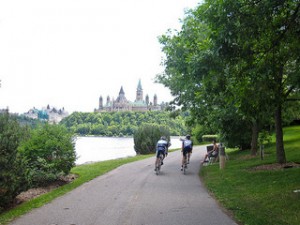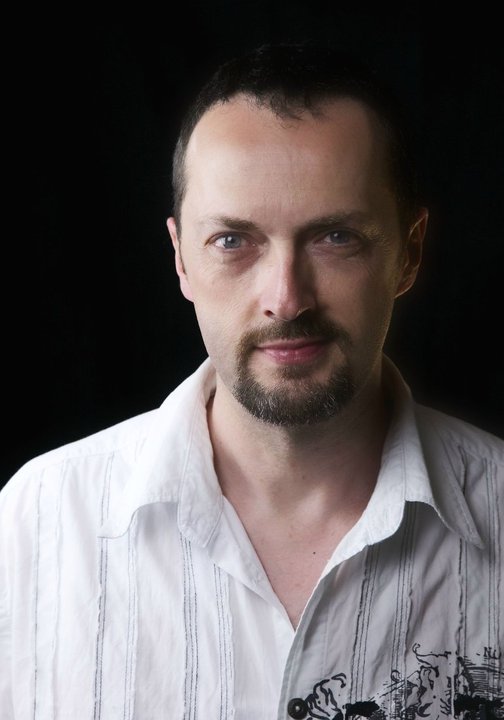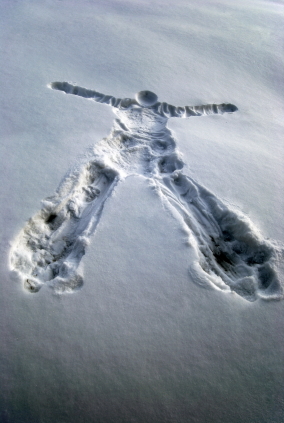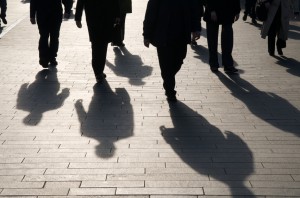Got Low T? Low E? What?!!!
Do you recall the Low T campaign, you know, the one where Daryl Moose Johnston is able to ‘get back in the game’ once he starts correcting his testosterone deficiency? Well, not only is Darryl suffering from low testosterone levels but newly published research suggests that men like Darryl may also be suffering from ‘Low E,’ as in estrogen. Can you hear the ‘cha ching’ in the background yet?
As researchers continue to unravel the mysteries of how declining testosterone affects men, they’ve discovered that testosterone has a partner in crime: estrogen. In fact, not only does it appear that different men need different levels of testosterone in their body to maintain their lean/fat mass balance, muscle strength and size, but as testosterone levels begin to decline as men age, so does estrogen and with it, men may be left with the accumulating middle tire that many of us women are quite accustomed to. Moreover, findings from the study mentioned above show that both testosterone and estrogen regulate sexual function in men.
A bit of context here just so we are on the same page. This recent bit of information comes from a study of 198 men between the age of 20 and 50 who were healthy and had normal testosterone levels. In men, ‘normal’ equates to ranges that decline as they age. The estrogen component is a bit trickier to explain; more than 80% of circulating natural estrogen in a man’s body comes from the conversion of testosterone. So, as testosterone levels start to decrease, so do estrogen levels. And, when some of the men in the study were provided with a steroid agent that blocks that conversion, they experienced an increase in body fat percentage. Another important point was that fat began to accumulate at testosterone levels well above the levels that would affect muscle strength and size, i.e. 300 to 350 ng. Finally, in both groups of men — those who received various levels of testosterone and those who received various levels of testosterone and a hormone to prevent conversion to estrogen — declines in desire and erectile function similarly declined as testosterone did.
Back in March, I wrote a post about hormone deficiency in men and following the money trail. Mind you, declining levels of testosterone (and by default, estrogen) can have significant consequences for some men that go well beyond sexual dysfunction or a bit of body fat. Consequently, by conducting this research, scientists will be better able to help men whose testosterone levels fall below a certain point, although estrogen replacement comes with its own set of problems (enlarged breasts anyone?). Aside from the obvious benefits, such as a better strategy for interpreting testosterone levels, identifying any negative consequences that might be associated with them and treating them accordingly, one has to wonder if the conversion of testosterone to estradiol or lack thereof, is a harbinger for a future campaign.
Got low T? Got Low E?
Need I say more?
Read More
Guyside: Reach for the middle!
It’s easy to reach for the top. We’re almost mandated to do it, right? Nike told us: “You don’t win silver, you lose gold.” Vince Lombardi exhorted: “Winning isn’t everything, it’s the only thing.” Steve Jobs said: “We don’t get a chance to do that many things, and every one should be really excellent. Because this is our life.”
I think men have a particular cultural script that says “more, bigger, better, faster.” It’s powerful. And the tech revolutions of the world have led to startups where the goal seems to be to work harder, pull the allnighters, and generally devote yourself, body and soul, to pursuing your ambition.
Not to say that ambition is bad. But over the last few years, I’ve made decisions — and some decisions have been made for me — that have started to make me think that perhaps we don’t give being average enough credit. Let me tell you a story about a guy who, as a kid, was pretty much the worst sportsman you could imagine.
This guy wasn’t … OK, let’s say it “I wasn’t… much of a skater. Or a baseball player. Basketball? Oh, man. Hopeless. I was pretty tall. But my teenage limbs made me look like a stick insect, and I was about as coordinated as a used-car salesman’s suit. I was pretty much the death of any sporting event I was press-ganged into during phys-ed class. It took me until my thirties to find a sport that I could be passionate about.
I was working at a university about 5 miles from where I lived, and parking there was quite expensive. And, my new house was just a few hundred yards from a network of bike paths. So I bought a used bike from a friend and became a cyclist.
Well, technically, I became a commuter. Becoming a cyclist came later. What I discovered was that I really enjoyed the riding part. There weren’t traffic jams to contend with. I remembered how free and fun it felt to ride a bike when I was a kid. Sometimes, the weather was not so great. And that was anywhere from unpleasant to nasty to… exhilarating. There was a certain joy in pounding your way home in a sudden rainstorm. Once you got to a certain level of wet, it didn’t matter anymore.
That first commuter bike died a sad death when its frame broke, a mortal injury. So I got another one. Then I heard about a local cycling club’s “Rideau Lakes Cycle Tour,” and decided to try training for a two-day, 230-mile ride.
I put on spandex for the first time. Then I went outside wearing it for the first time. I went from the upright-position hybrid bike to my first road bike. I took a group riding course from my local cycling club and started going out on the weekends to ride. I bought clipless pedals and learned how to ride while bolted to my bike. Commutes became kickoffs to longer early-morning or afternoon rides.
I got to the point that when I went home to visit my family, I found someone who would loan me a bike, got my dad to drive me to the bike, then spent the rest of the vacation taking beautiful summer morning rides.
And for the last 10 years or so, cycling’s been my thing. I can ride 30-50 miles without much forethought; the century (100 miles) is a little bit of a challenge, but not like climbing Mount Everest. But all that is not to say that I’m a good cyclist. Hell no. Let me enumerate the ways in which I’m not a good cyclist.
- My iffy fitness regime means that my hill-climbing ability is awful. In the Tour de France, the “King of the Mountains” wears a polka-dot jersey. They oughtta give me prison stripes.
- I’ve never raced. Never felt the thrill of sprinting past the pack and crossing the finish line in a criterium (closed-streets race on a relatively short track). By the time I started riding, the romance of racing was outshouted by the reality of crashing.
- I possess neither the finances to spend thousands of dollars on the most high-tech components possible to reduce the bike’s weight by a few ounces, or the willpower to reduce my weight by a few pounds, both of which would make me faster on the bike.
- My cycling wardrobe tends to jerseys with Sesame Street characters or illustrations of hamburgers on them, rather than team kit.
- I might go a week without a long ride. Sometimes two.
- In Ottawa, the snow begins in November and the roads clear in March or April. My indoor training regimen is … spasmodic at best.
That’s just a start. And you know what? I don’t care.
One of the things I’ve come to learn is that I don’t mind being a bad cyclist. There’s something to be said for riding slow, and for accepting that the young turk on the $7,000 bike (yeah, that’s not even the top of the top-range) is going to smoke me going up or down the hills of Gatineau Park.
I enjoy going 15 miles an hour as much as I would going 25. I enjoy the feelings of cycling, either alone or with friends, and I enjoy the sensations. Dedicating my life to becoming a top-notch cyclist wouldn’t make me enjoy it more. In fact, it might reduce my enjoyment.
Life is full of things we have to do: obligations. At least mine is. I don’t need to turn a thing I love into another one of those obligations. There’s a joy to being okay at something. And if you’re pushing yourself in one or more aspects of your life, maybe there ought to be room in your life for something you’re … just okay at.
I have tons of friends who are marathoners, triathletes, hockey players, basketballers, and the like. I regularly applaud and admire the ones who are “serious athletes” or “competitors.” But I’m not one of those. And you know what? I’m pretty much okay with that.
Dare to be average. You might just like it.
Photo: Creative Commons licenced by Flickr user Fil.Al, used with permission.
Read More
Who put the ‘men’ in menopause? Part deux.
Bob LeDrew, that’s who!
There’s some changes going on and it’s not of the menopausal kind. Starting next week, in fact, my friend and sometimes partner in Words with Friends is joining FlashFree with his new monthly column: Guyside.
Yup, Bob’s going to bring a bit more y into our x’s, testosterone into the estrogen and hopefully, bridge some of the communication gaps that pervade this thing we call midlife.
The few glimpses that I’ve been afforded not only excite the hell out of me but, I know that this new twist is going to shake up this space in ways that I could only dream of previously.
Stay tuned. Menopause has got a ‘brand new bag’ (sorry, my friend!) and his name is Bob!
p.s. If you didn’t catch his guest post last month, Falling into the trips of masculine invulnerability, you are missing out. Check it now!
Read MoreFalling into the traps of masculine invulnerability – Guest post by Bob LeDrew
I’ve been trying to recruit the guys to guest post on Flashfree ever since I started this blog. And my pleas have fallen on deaf ears, save for one or two brave souls. Speaking of brave souls, I am truly blessed to call fellow writer Bob Le Drew a friend. Not only is he extremely talented, but, his self awareness and ability to overcome the trappings of masculinity appear to have paid off. He has a few insights for the men in your lives that you might wish to share and, you may learn a thing or two as well. I did!
Show some love…
I don’t like restaurant bathrooms with red walls. Once you’ve had bladder cancer, you tend to look closely at your urine stream, and those red walls give it a rosy hue that normally signifies nothing good.
I discovered something about myself seven years ago, when I first saw blood in my urine. I went to my clinic immediately, where my nurse practitioner saw me and recommended urinalysis. The first round didn’t find anything. But when it recurred a few weeks later, we found findings concerning enough to go further, and I was a new citizen of Cancerland.
But I’m not, apparently, your typical male.There’s a significant body of research that shows men are less likely to seek out help for physical and psychological problems than are women. That can lead to serious consequences — as serious as death, when heart attack symptoms are ignored until the infarction is catastrophic.
So what’s WRONG with us, guys? I’ve got a couple of theories.
#1: When men are young, we’re invulnerable. I was somewhat immunized by that by losing a brother when I was 13 and he was 19. But in general, our attitude as teenagers and in our twenties is “What could happen to us?” unless we or someone we love are diagnosed with something serious. In my case, my dad had been diagnosed with bladder cancer a number of years before mine showed up (he went on to have five primary cancers and live with them for 20 years before dying just short of his 87th birthday). His experience, and his sharing of information with me, made me realize that I couldn’t just pass off the bloody pee as “nothing.”
#2: We cling to our youth and our invulnerability. When I ride my bike, I still want to push my body as hard as I can, and even though I don’t train as hard as I used to, my decreased ability to climb steep hills with speed and grace is an ongoing frustration. Same thing with staying up late and eating poorly. The lessons we teach ourselves in youth are hard to unlearn.
#3: Part of our self-esteem and self-worth is tied to not seeking help. In Stephen King’s novel Bag of Bones, hero Mike Noonan says he’s the kind of guy who’d drown silently rather than call out for help. Isn’t that true of so many of us as men?
Several years after my cancer experience, I found myself facing a serious depression. I denied that things were not going well for me psychologically. I didn’t seek help. Why would I, when “everything was fine.” And I continued to deny the reality of my depression until I hit a painful, damaging, and nasty wall. Our love for physical invulnerability is only matched by our firm belief that admitting we’re not coping well is the LAST thing a man should do.
The temptation to ignore or deny symptoms of depression or stress is one I continue to struggle with.
And of course, none of this addresses the issue of access to services. I live in Canada, and have ready access to free medical care, as well as group insurance that subsidizes the cost of dental, psychological, and other types of medical services. I can only guess that having to pay for medical services in tough economic times would make men even more likely to “tough it out” and save scarce resources for “more important” things.
I was lucky. Twice. My bladder cancer was “superficial” — a good thing. With some minor surgical fixes, I have been physically healthy for the last several years. And thanks to talk therapy, a supportive partner, treatment, and medication, I am able to manage my mental health pretty well.
So if you, like me, are closer to retirement age than high-school graduation, don’t fall victim to the traps of masculine invulnerability. Your body, your mind — and your loved ones — will thank you for it.
About Bob LeDrew
Bob LeDrew is principal consultant at Translucid Communications in Ottawa (Ontario, not Kansas). He’s been doing communications in one form or another since 1987, and in addition to his consulting work, teaches regularly at Algonquin College and Eliquo Training and Development. He’s also the creator of The Kingcast, a podcast dedicated to his favorite writer, Stephen King. He enjoys cycling, animation, whisky, and playing guitar. He usually only does a maximum of two of those at one time.
Read More
Still feeling like a shadow of your former self?
Must be “Low T,” right?
Low T is a global problem of epic proportions. In fact, UK researchers are reporting that testosterone prescribing has reached epidemic proportions, with an increase in prescriptions by almost 90% between the years 2001 and 2010. Moreover, the majority of these prescriptions have not been for an established hypogonadism (a decline in the functional ability of the testes to produce ample amounts of testosterone. This can lead to erectile dysfunction, low libido and a low sex drive. Aside from sexual dysfunction, hypogonadism can also cause depression, lethargy and fatigue. And yet, the most recent statistics from the Urology Care Foundation suggest that low T is a problem mostly affecting men 60 and above. In the UK study, only 6.3% of men had definite hypogonadism. So, what gives?
Money.
A few years ago, the pharmaceutical industry jumped on the male menopause wagon and the current campaign is a doozie. The condition? Low T, which is better known as low testosterone, andropause or the commonly used misnomer, “male menopause.” In fact, you can take a simple quiz to learn if you have Low T and if you need to speak to your doctor.
I’ve written about male menopause and have also directed readers to data that shows that it may not be all that it’s cracked up to be. Is it irritable male syndrome? Or is it another marketing tool to sell drugs to unsuspecting men who are aging and losing their virility?
Truly, if you are feeling like a shadow of your former self, there may be other things at play than testosterone. You might want to speak to your healthcare practitioner before jumping on the Low T wagon. Too much testosterone can lead to heart disease and negatively affect the prostate gland.
The medical community remains unconvinced about the condition and the need to treat it. In fact, that might be why, in 2011, University of Pennsylvania researchers started putting it to the test with the T Trial, which may solve this question once and for all.
Read MoreYa know that male menopause?
Ya know that ‘Low T,” the male equivalent of female menopause, the “iT” condition to hit the airways? It appears that male menopause is a whole lotta of hype based on not so much evidence.
In fact, in a newly published study in the online edition of esteemed New England Journal of Medicine, researchers show that low testosterone is a very rare condition, affecting only 2% of elderly men, most of whom have poor health and are obese.
Kind puts a an axe on the whole “shadow of one’s former self,’ eh?
In the study, researchers surveyed over 3,300 men between the ages of 40 and 79 (mean age, 59.7 years in order to collect information on general, sexual, physical and psychological health. They also measured blood samples daily for testosterone, and then divided the groups so that they could be compared.
The results?
In the entire pool, only 32 men were found to have severe low testosterone that could not be caused by any physical problem. What’s more, the researchers learned that many symptoms of what is considered classic male menopause were not actually associated with decreased testosterone levels, including loss of energy, physical ability, fatigue and depression) highlighting that what has been largely touted as “male menopause” is simply non-specific symptoms of aging.
The researchers concluded that only three symptoms were actually associated with male menopause, i.e. decreased frequency of morning erections, decreased sex drives (i.e. sexual thoughts) and erectile dysfunction, and that these symptoms, in concert with very low testosterone levels, had to be present in order to devise a true diagnosis of male menopause.
This means that male menopause, low T, whatever you call it, is overhyped, overdiagnosed and simply does not affect an overwhelming majority of men who are being unwittingly prescribed testosterone therapy when they don’t need it.
Men – please, speak with your doctor before starting testosterone to boost your sex drive. The researchers say that “testosterone may only be useful in a relatively small number of cases.”
Think you’ve got ‘Low T/ male menopause?’ It may not be your problem after all.
Want more? Reuters Health also has a piece on this study.
Read More





